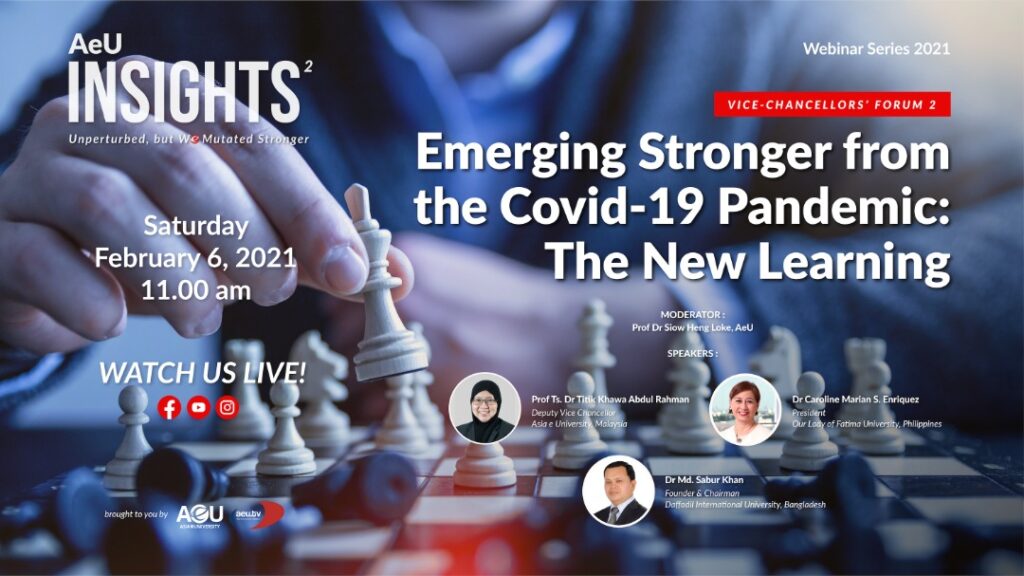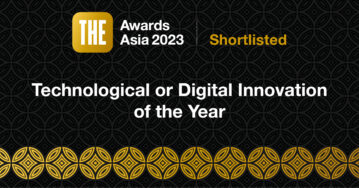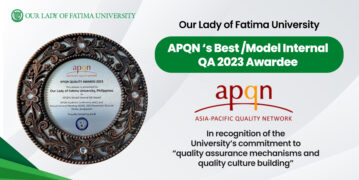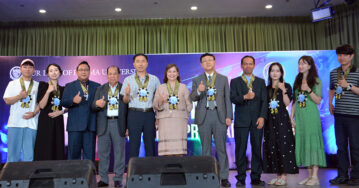06 February 2021
It has been almost a year since the COVID-19 pandemic struck, greatly affecting lives and industries around the world. Because of the changes and challenges, everyone learned to adapt to the New Normal and, even up to now, adapting is still a continuous process of discovery and adjustment. The higher education industry, which is one of the greatly challenged sectors especially in the Philippines, has also found itself making huge modifications in the ways things are being done. Through collaboration and innovation, schools are constantly moving forward as they learn from each other and the challenges that they uniquely encounter.
On 06 February 2021, the Asia eUniversity (AeU), a Malaysia-based and -initiated premier institution hosted the international webinar, AeU Insight Vice-Chancellor’s Forum 2: “Emerging Stronger from the Covid-19 Pandemic”.
The said event featured renowned academic leaders and speakers in: Prof Ts. Dr. Titik Khawa Abdul Rahman, Deputy Vice Chancellor of AeU; Dr. Md. Sabur Khan, Founder and Chairman of Daffodil International University in Bangladesh, and Dr. Caroline Marian S. Enriquez, President of Our Lady of Fatima University. The discussion was facilitated by Prof Dr Siow Heng Loke of AeU.

The conversation began with a question on how the pandemic impacted the speakers’ respective universities and how they overcame the effects— acknowledging how these led to the closure of campuses and a decrease in enrollment.
Dr. Enriquez shared the journey to the Fatima Learning Experience, including the shift to online classes. Even before the pandemic, OLFU had already been using its Canvas Learning Management System for instances of cancelled and make-up classes due to suspensions. Still, convincing students to embrace online learning appeared to be a struggle, with Dr. Enriquez noting that in the Philippines, people still had a more traditional stance in education. Because of this, OLFU focused heavily on digital marketing and likewise on the recalibration of the curriculum. Aside from training its teachers, the University also made significant investments in online learning resources, technologies, and cybersecurity. The option of modular learning for Senior High School students with limited or no internet connection was provided, too.
She said that the transition to flexible learning brought a lot of learnings and accelerated digital transformation. “If it were not for the pandemic, I think the acceptance of digital learning would still be at the background of most digital institutions, but because of what happened, it opened up a lot of opportunities; it also opened our minds about the possibility of how great education could be even if it’s done online and how we could manage online delivery in a better way, in a massive scale so that it’s not only acceptable to all but it’s also very successful,” Dr. Enriquez averred.
For AeU, which has been operating with the flexible education setting even before the pandemic, Prof. Abdul Rahman said that they were not very much affected in terms of operations. However, they were indirectly affected as they have students who were economically challenged due to the crisis, noting that several of them are working adults. In this regard, AeU, through “AeU Cares”, provided support for their students and reduced their fees “to ensure that COVID-19 will not affect the progress of their studies.” She also said that they also had the opportunity to improve their digital marketing avenues. In turn, AeU saw an increase in new students.
Students at Daffodil International University also had similar difficulties, said Dr. Khan. He added that many of the learners did not have their own digital devices aside from their mobile phones. Because of this, their University distributed subsidies, scholarships, and laptops. They likewise talked with mobile operators for data connection enhancement.
Dr. Khan also said that their University boosted their digital marketing, with the pandemic pushing them to move “100 percent online.” In addition, trainings for teachers were organized. He reported good results about their shift to the online setting as students showed great response to it. Moreover, they also strengthened their ties with parents and prospective students through parent conferences and their virtual admissions fair.
The discussion of the leaders then moved to the preparedness of their universities for the new setup, especially with consideration for science subjects, touching on the use of innovations such as new technologies, laboratory software, videos, assessment tools, and the like.
The topics of mental health and online fatigue were likewise included, and the institutions had different approaches in ensuring wellness among their teachers and students. At OLFU, mental health awareness was promoted through webinars, breaks, and one-on-one talks, with the goal of making its students feel the concern of their educators.
At the end of the fruitful forum, all three academic leaders agreed that the pause in the conventional education setting caused by the pandemic gave them opportunities to further improve and innovate on their systems and processes. For them, education must continue, for it plays an important, beneficial role in uplifting the lives of students and their families. As Prof. Abdul Rahman said, education “can improve their living and economical conditions.”
——-
The AeU Insights Vice Chancellors’ Forum 2 may be rewatched on Asia e University’s Facebook and YouTube accounts.



